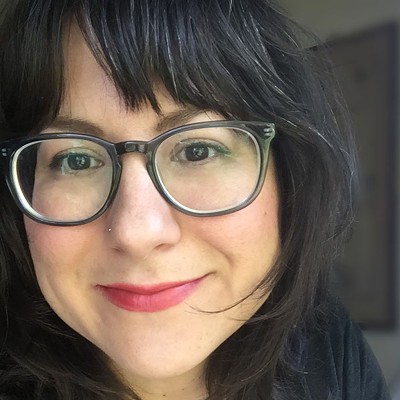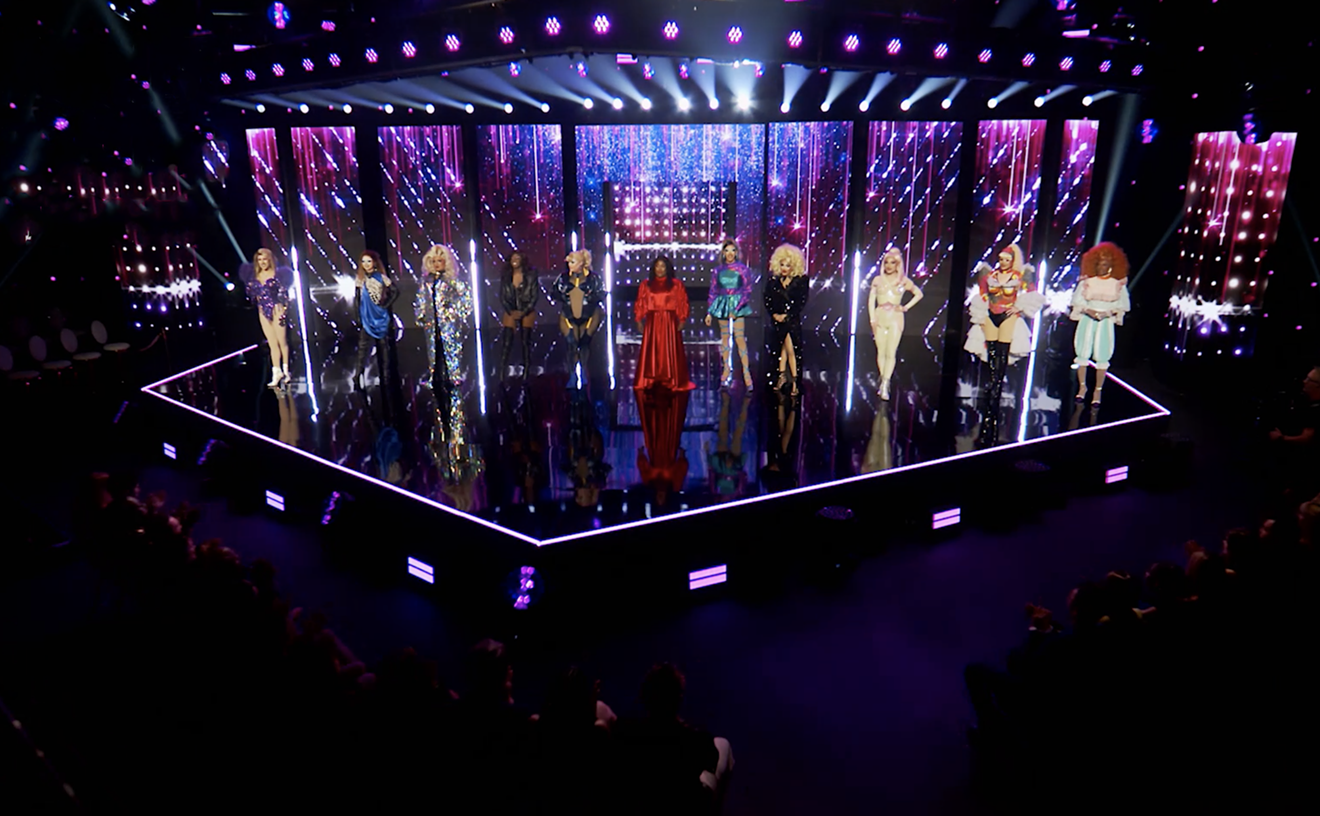Award-winning Egyptian film Microphone explores the Alexandria art scene through the story of one man, Khaled, who's returned home after many years away. It screens in the World Competition program at this year's Miami International Film Festival. The film received Best Arabic Language Film Award from the Cairo International Film Festival and the Taint d'Or at the Journées cinématographiques de Carthage.
After Miami, Microphone will head to the Museum of Modern Art in Geneva, Switzerland, and previously it screened in Toronto, Vancouver, London, Dubai, and Stockholm. Producer Mohamed Hefzy is a Cairo native and an engineer by trade. He's produced six films and has worked as a scriptwriter for ten years. Hefzy won't be able to make it to South Florida for tonight's screening due to recent events in Egypt. We spoke with him about the revolution and art.
After Miami, Microphone will head to the Museum of Modern Art in Geneva, Switzerland, and previously it screened in Toronto, Vancouver, London, Dubai, and Stockholm. Producer Mohamed Hefzy is a Cairo native and an engineer by trade. He's produced six films and has worked as a scriptwriter for ten years. Hefzy won't be able to make it to South Florida for tonight's screening due to recent events in Egypt. We spoke with him about the revolution and art.
New Times: What makes Alexandria a particularly interesting art scene as opposed to Cairo or other cities in Egypt?
Mo Hefzy: Well, Alexandria is like a microcosm of Egypt because it's the second biggest city, but at the same time, it's very concentrated and the community there is not only smaller, but kind of all know each other. And at the same time, it has a really vibrant underground art scene, which also exists in Cairo, but Cairo, because it's so spread out, and it's so big and vast, that it kind of gets lost within the other cultural scenes and the Cairo landscape in general. But Alexandria, because it's smaller and more confined, the underground art scene is much more... Once you really explore it, you feel it's much more powerful because Alexandria is smaller, in a way, but at the same time it represents a bigger picture of the country.
In the movie, there is tension between the establishment and the art scene in Alexandria.
Yeah, if you got to see a bit of the film, then you probably felt it. One of the bigger obstacles of the film is how these young independent artists are trying to get their voices heard. And not only do they not have financial backing, but they also have censorship. Censorship from two kinds of extremes, one of them being the authoritarian establishment rooting the country which was the situation that existed before the revolution and how this establishment was denying any voice that was calling for change, that was calling for drastic change or for freedom or for just having a different opinion. At the same time, you have the religious establishment which is also against, you know, liberal, free thinking, and between these two extremes, you know, the young artists kind of had a really hard time trying to get their voice across. So, these were two big obstacles, two conflicts, you know, how did they evade that or the other, if they evade one, then the other will always be in their way.
This (the last scene in the film) kind of represents, it's very metaphorical of what's happening on a bigger scale in the country and I think now that the revolution has happened, what's going to happen is it's going to be much harder to subdue young, free, talented voices.
You were in Egypt during the revolution.
Yeah, of course. I did go out to Tahrir Square a few times. On the fourth day, I was going out and joining friends and just making my voice heard, and just observing, and mainly trying to understand what these people wanted and how far they were willing to go to see the changes, and what were the minimal concessions that they were willing to accept in terms of changes, but real drastic changes. What did they really want? Did they just want to get rid of the president, or did they want to get rid of the whole system? What did they want to replace it with? How did they plan to do that? These were questions I had in my mind, so I tried to go out there, not only to join the protest, but try to understand what these people want and how they think they can achieve it?
What role do you think art played in the revolution? Do you feel like the art scene played a role at all?
No, honestly I think what mainly played a bigger role was the economic situation and Tunisia. These were the main catalysts.
Definitely.
The hatred for the police, the hatred of the brutality of the police who have been very brutal against any protest or declaration of unhappiness, and lack of freedom of expression, all of these things. Lack of jobs, poor economic situation, corruption, all of these things were lingering in the minds of young people. The catalyst, I think, was Tunisia. The fact that you could go out there and over throw a government just by being out in the streets in large numbers. (Inaudible) Give it a try and organize and go out there and demand change. I think that was the biggest factor.
Art was expressing that resentment against the system, and the need for change, and all that but it's not as powerful as seeing it happen in reality, in front of your eyes in a neighboring country.
Music plays a big role in Microphone. There was music in almost every scene. What role do you think it played, it seemed like it did more than just create a mood, it also told a story.
The thing about the music is that we didn't create the music for the film. The music was already there, these people had already made the songs. The songs reflected our own voices and in a way we were complementing that with their words, and their lyrics, and their beats.
The music was very instrumental in creating not just the atmosphere, and it wasn't just the main attraction, you know, artistically, it was a big attraction, it was more than that. The film itself was about the music, about the artists and what they took to the film. And I had to take a lot of space. I think there's a total of nine pieces of music, whether complete songs, or just like hints of songs or just like instrumental. I think it was just about 15 or 16 different pieces of music they take up about 25 minutes of the film, it's 120 minutes long, so we're talking about more than 20 percent.
What feelings or thoughts do you want people to come away with after watching the film?
I would love the audience viewing the film to leave with a sense of victory for these artists who represent the voices of thousands of talented young Egyptians. A victory that was ironically achieved a couple of weeks ago with the revolution and that was foreshadowed in the movie.
In conjunction with MIFF, the Middle East American Professionals Association (MEAPA) has worked to include Middle Eastern films in its lineup. Four films besides Microphone, show Middle Eastern culture, Incendies (Canada), Mandoo (Iraq), and Gesher (Iran). Microphone will screen at Regal South Beach (1100 Lincoln Road, Miami Beach) on tonight at 10 p.m. and at Bill Cosford Cinema (1111 Memorial Drive, Coral Gables) tomorrow at 6:30 p.m.
Follow Cultist on Facebook and Twitter @CultistMiami











